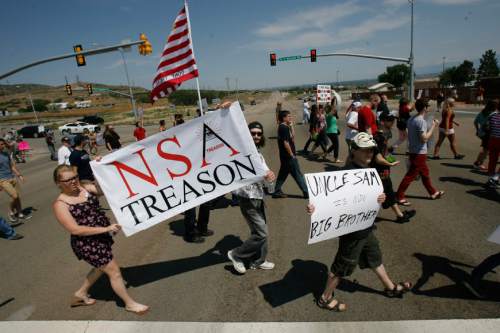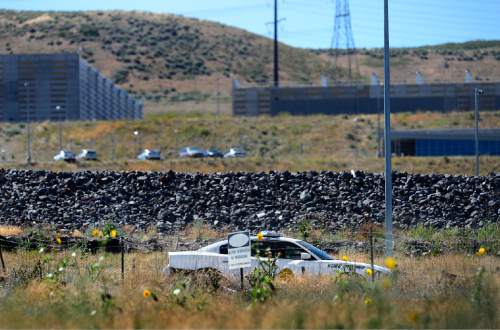This is an archived article that was published on sltrib.com in 2015, and information in the article may be outdated. It is provided only for personal research purposes and may not be reprinted.
Washington • The former head of Qwest Communications says it's likely that the National Security Agency and the FBI monitored all email and text communications in the Salt Lake City area during the 2002 Winter Olympics but says he can't confirm whether his company helped intercept the communications.
Joseph Nacchio headed Denver-based Qwest from 1997 to 2002 and later served more than four years in prison on insider-trading convictions involving the telecom giant. He said Wednesday that he couldn't say whether the company worked with the NSA or FBI to capture such information during the Olympics, but that the agencies could have worked with other executives to gain access without his knowledge.
"I don't remember being contacted about that, but then I may not have had the need to know," Nacchio said after a speech at the National Press Club on the civil-rights threat of government surveillance.
"I would be real surprised in 2002 if it didn't happen," Nacchio added, noting later, "They would have been crazy not to do it."
Nacchio said Wednesday if he had been presented with a court order, he probably would have provided records to the NSA at the time.
A top-secret NSA inspector general's report from 2009 — leaked to The Guardian newspaper by former NSA contractor Edward Snowden — detailed an agreement between the spy agency and "Company E," thought to be Qwest Communications, to "provide call detail records ... in support of security for the 2002 Olympics in Salt Lake City."
Additionally, The Wall Street Journal reported in 2013 that the NSA and FBI monitored communications in the Salt Lake City area "for a period of less than six months" surrounding the Winter Games. The international sporting event was held less than six months after the Sept. 11, 2001, terrorist attacks and prompted a higher security level.
The NSA and FBI "monitored the content of all email and text communications in the Salt Lake City area," The Journal said, citing unnamed government officials.
Nacchio, who was convicted on 19 counts of insider trading and released from prison in 2013, asserts that his prosecution was retaliation for his refusal to allow the NSA to spy on his customers.
The then-Qwest CEO met with NSA officials in early 2001 at the agency's Fort Meade headquarters about possible classified — and lucrative — contracts his company could land, according to court documents. But the contracts never came to fruition when Nacchio told the government he would need a court order to comply. Prosecutors have insisted their case had nothing to do with the NSA, the court records show.
Qwest flirted with bankruptcy in 2002 and in 2011 merged with CenturyLink.
The NSA declined comment for this story.
James Bamford, who has chronicled the NSA's actions in several books, says the 2002 Olympics came at the time President George W. Bush's administration started its warrantless wiretapping program, and that with such a major event like the Winter Games occurring in America, the intelligence community would have been paying close attention.
It would seem logical, Bamford says, for the NSA to be spying on communications in the Salt Lake City area at the time, although he doesn't have any hard evidence that's the case.
"I would think they wouldn't have turned a blind eye on it," Bamford said.
Nacchio, through his lawyer, had declined to comment two years ago on whether his former company worked with the NSA on spying during the Olympics, but he noted Wednesday that stories about such a deal would be a postscript to a book he's seeking to publish.
During his press club speech, Nacchio derided government snooping and elected officials' use of national-security concerns to override protections of the Constitution's Fourth Amendment. He said the USA Freedom Act, co-sponsored by Sen. Mike Lee, R-Utah, and signed into law in June by President Barack Obama, was a political effort to appease critics and shove government spying out of the headlines, but it doesn't do enough to protect U.S. citizens from federal overreach.
"The federal government," Nacchio said, "is now the biggest threat to our freedom."





